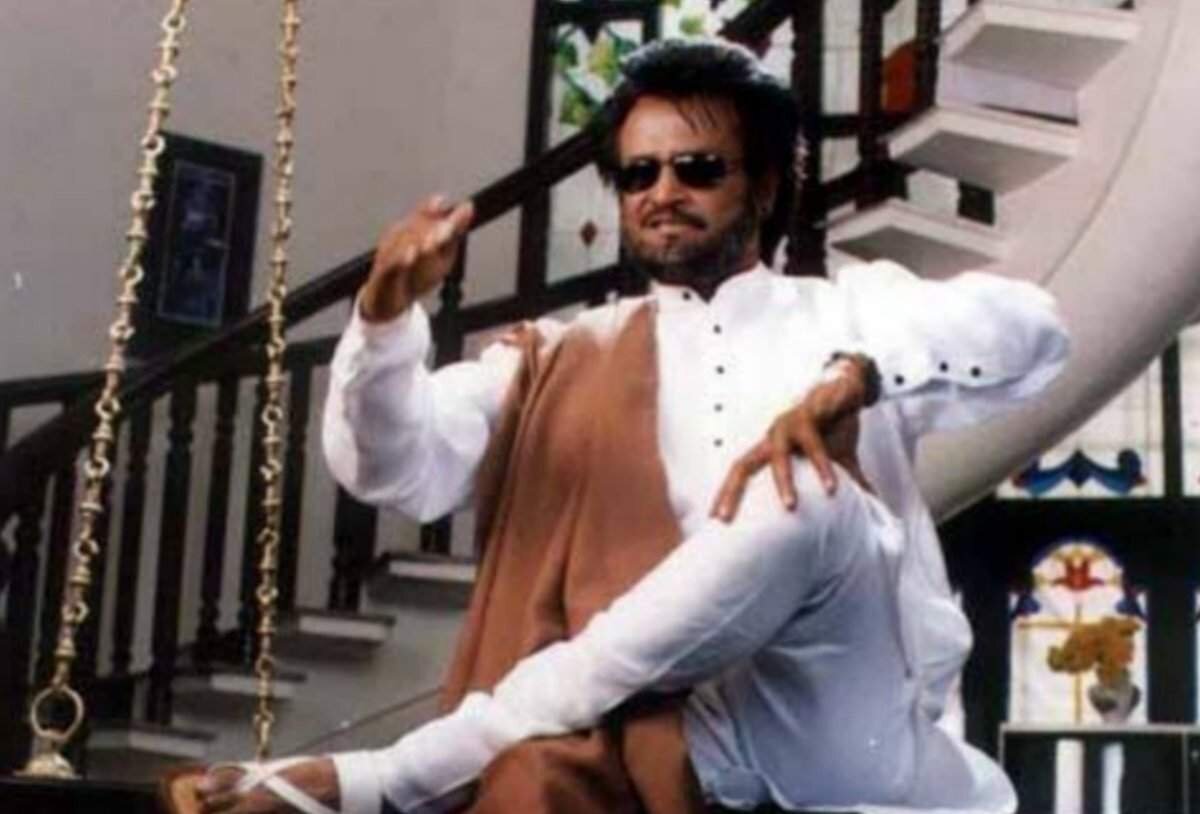Padayappa: The Quintessential Tamil Family Film
Great films exist all around us; if you have a strong vision, an engaging story, and a fantastic cast and crew to channel that vision into a film, it’s hard not to make it great. But to make a truly memorable film that embeds itself in the cultural consciousness? Films as iconic as Star Wars, E.T. and The Dark Knight are few and far between. It takes a roll of the dice to separate the great films from the classic ones, but the odds are much lower if the whole family can enjoy them. Perhaps that is one way of understanding Padayappa’s enduring success.
K.S Ravikumar’s Padayappa is a modern classic of Tamil cinema; viewing it is a family tradition unto itself. At every Diwali (the Indian festival of lights), at least one of the Tamil language television channels plays Padayappa, and families gather to watch it. My family was no exception; I could quote the punch lines from the film with ease when I was twelve years old. At the Diwali get togethers for my extended family, we would all ask the next person whether they had seen Padayappa or one of the other Diwali films that screened - everyone mostly just watched Padayappa again.
Padayappa was released in 1999, and it was a star vehicle for one of Tamil cinema’s biggest stars: Rajinikanth. Rajinikanth is a phenomenon all by himself; every movie he stars in inevitably becomes a success because the masses in rural and urban South India worship him, and he is one of the few Tamil actors to be able to get audiences in North India to watch his films.
The story follows Padayappa (Rajinikanth), an engineer who comes back home for his sister’s wedding. Marrying within the family is a common practice in rural India, and his sister is getting married to her cousin Suryaprakash (Nasser). Suryaprakash’s sister Neelambari (Ramya Krishna) falls in love with Padayappa, but Padayappa’s heart lies with Neelambari’s maid Vasundhara (Soundarya). Neelambari sets out to get Padayappa any which way she can, even if it means eliminating Vasundhara – and that’s just one plot line (as is characteristic of most Indian films that adhere to the masala formula of throwing in action, comedy, drama and melodrama into one big pot and mixing it all up), Padayappa also features a rags-to-riches story, an attempt at cross-generational revenge, and a couple of raging bulls.
Kollywood films, the Tamil analogue to Hindi’s Bollywood, are known for their incessant hero-worship; their heroes possess ultra-righteous values that they always abide by and they are able to say witty punch lines on command that reflect this righteousness. They are also known for their black and white depictions of good and evil, where “good” is paired with God-fearing tradition and “evil” with a lack of those “good” traits. Padayappa is no exception to this formula.
In the film, Padayappa’s immediate family is beholden to the tradition of consent in marriage as a result of a past tragedy. Neelambari’s family, on the other hand, does not care for consent; both Neelambari and Suryaprakash never consider what the wishes of their intended spouses are for the course of their relationships. India being the patriarchy that it is, Padayappa gets to resist Neelambari’s advances and Suryaprakash gets to flout the village’s custom of declaring the legitimacy of his marriage in front of the village deity. It is its strict adherence to tradition and custom that puts Padayappa and his family on the good side of fate, and fate operates in ways that echo Greek drama in the film (especially in the scene where gusts of wind blow into Padayappa’s former mansion right at the moment when he is supposed to sign over his remaining wealth). What the Kollywood formula whitewashes in the depiction of its heroes is any sense of realism; the question of class in Padayappa is never explicitly mentioned apart from Neelambari’s jabs at Vasundhara, even though it’s quite clear that Padayappa is doing something quite unconventional by marrying a maid. Padayappa is good in every sense of the word.
Watching the film again after a long time, I was reminded of how good a traditional Kollywood film can be if done right. The industry is going through a churning phase where independent producers and up-and-coming actors from a variety of diverse backgrounds are pushing established stars and directors to the side; they’re dispensing with the formula altogether and experimenting with the form instead: Tamil cinema saw its first time-travel film released in June of this year. The three-hour behemoth has stagnated; it remains successful with the right team and with a hit soundtrack, but it is less of a sure thing. Padayappa harkens back to a time when the Tamil film audience wasn’t exposed to world cinema on the scale at which it is now, when directors could rip off popular Hollywood movies and not be caught with their pants down, when all you needed was a larger than life hero who could grab a snake by its neck and stop a bull in its tracks. I’m glad that Kollywood is evolving as an industry and I don’t lament the decline of the formula film, but there will always be Tamil classics like Padayappa, Avvai Shanmughi, Arunachalam and Baasha that remain close to my heart. It must be nostalgia; I doubt that anyone from a different culture will be able to see the appeal of those movies, but in that respect I suppose it’s a bit like soul food: warm and comforting, it fills you up and exhausts you, all at the same time.
